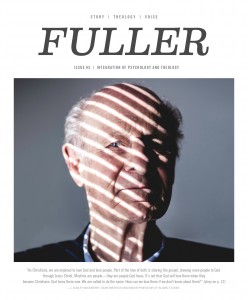
Before joining the faculty at Fuller, I was, for 24 years, a pastor. The congregation I served, and all congregations, are messy: jumbled expectations, people experiencing times of great joy and of deep sorrow, heated discussions at board meetings, casseroles, preaching, and weekly critiques on just about anything. Congregations are messy places for one simple reason—they are an assembly of people. Being a pastor is tough, but most of the time, it is the best life.1
The work of a pastor is to help people grow as disciples of Jesus Christ: leading people from sickness to healing, from immaturity to maturity, and from being settled to being sent. The Apostle Paul described his work with the churches in Galatia this way: “My little children, I’m going through labor pains again until Christ is formed in you” (Galatians 4:19). This labor towards discipleship happens as pastors go about their routines of ministry. This work happens when the church gathers, but most often it happens in the midst of ordinary life, in relationships, as pastors intentionally pay attention to what God is doing, or seeks to do, in the life of a person whom they shepherd.2
In the church I served, we would often say: “All of us are broken people; some of us have better masks.” With “battles on the outside, fears in the inside” (2 Corinthians 7:5), we gather as church. We are defined not by problems, but defined as those loved by God in the process of being formed into the image of Christ.3
To do this work well, theology is not enough. Certainly, pastors need to study the Bible, church history, and doctrine, but the workplace of a pastor is the lives of people. The Word becomes real in the lives of people, not in isolation, but in the ordinary twists and turns of life. Pastors attend to theology, but they must also pay attention to what is happening with people. Eugene Peterson confesses:
I realized that I knew a lot more about scripture and truth than I did about souls and prayer. I also realized that for me as pastor, souls and prayer required an equivalent demand on my attention as scripture and truth. This is what pastors are for—to keep these things alive and yoked in everyday life.4
Pastors are not therapists. We are not trained to deal with complex psychological issues. But pastors, in order to serve their people in process, must develop an understanding of issues related to mental health, suicide, grieving and loss, eating disorders, relationship troubles, addictions, trauma, family systems, and just plain listening. This allows pastors to do a better job of detecting concerns, referring people to professionals, and simply being able to care in a more informed way.
Students who study at Fuller benefit from faculty who teach in the areas of theology, intercultural studies, and psychology. This allows us to better equip those who serve the church. In my master’s-level class, Pastoral Ministry, I bring in the best voices from our Schools of Psychology and Theology to give students new lenses to attend to issues that arise in the life of a congregation. Fuller’s Doctor of Ministry program offers courses taught by leading psychologists and theologians in order to enhance the skills of ministry leaders as they focus on people in their care.
Being a pastor is a hard and demanding job. Our Doctor of Ministry program, and other departments at Fuller, are working to help pastors and other ministry leaders attend to their own spiritual and psychological well-being so that they might serve well, and finish well.5
Every local congregation is a work in process. It’s a holy assembly of people growing into the image of Christ. Pastors are faithful guides and mentors ministering the Word to people in the ordinary realities of life. They do this best as they attend to the Word and attend to souls. I am grateful for the integration of theology and psychology that happens at Fuller Seminary.


